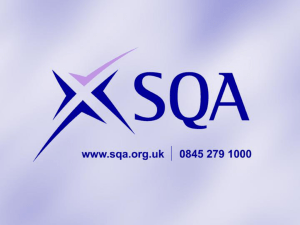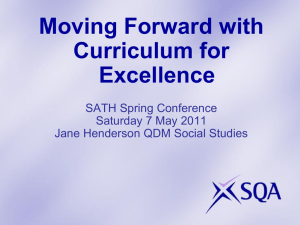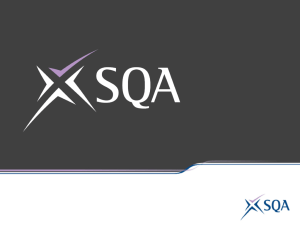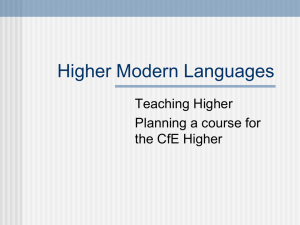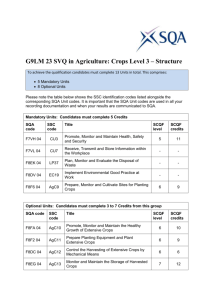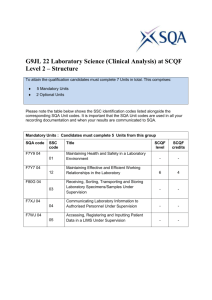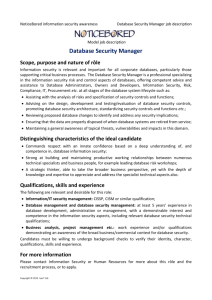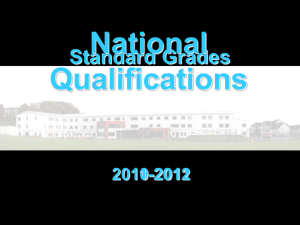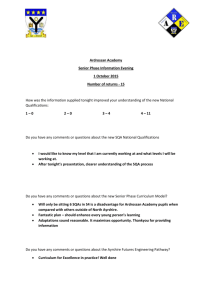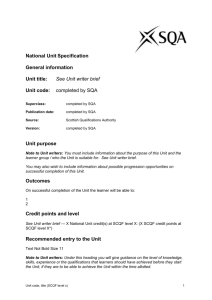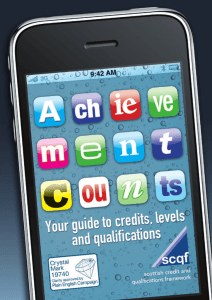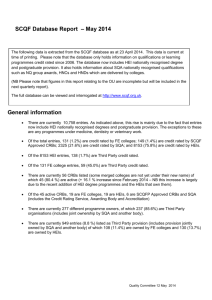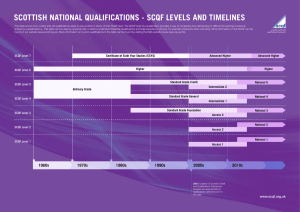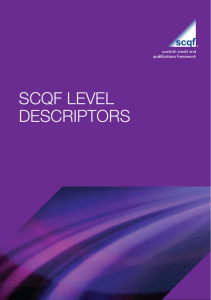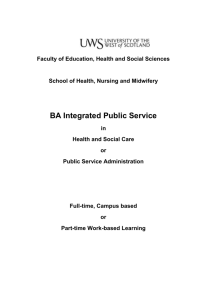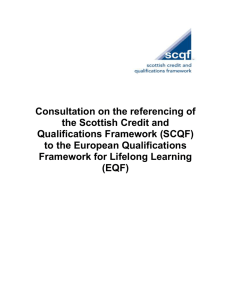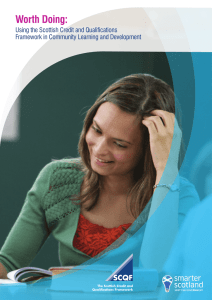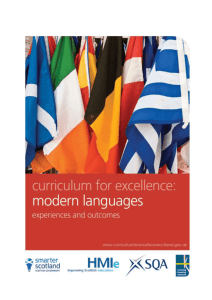Progression Case Study – Modern Languages
advertisement
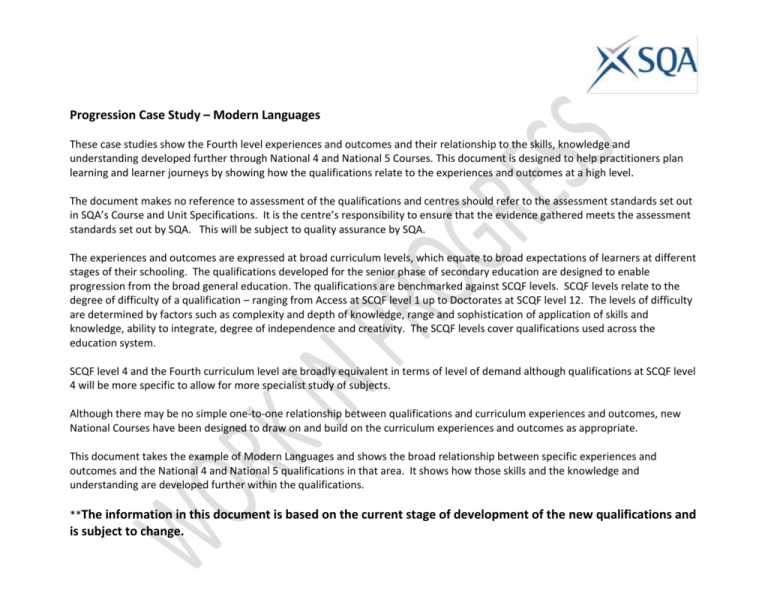
Progression Case Study – Modern Languages These case studies show the Fourth level experiences and outcomes and their relationship to the skills, knowledge and understanding developed further through National 4 and National 5 Courses. This document is designed to help practitioners plan learning and learner journeys by showing how the qualifications relate to the experiences and outcomes at a high level. The document makes no reference to assessment of the qualifications and centres should refer to the assessment standards set out in SQA’s Course and Unit Specifications. It is the centre’s responsibility to ensure that the evidence gathered meets the assessment standards set out by SQA. This will be subject to quality assurance by SQA. The experiences and outcomes are expressed at broad curriculum levels, which equate to broad expectations of learners at different stages of their schooling. The qualifications developed for the senior phase of secondary education are designed to enable progression from the broad general education. The qualifications are benchmarked against SCQF levels. SCQF levels relate to the degree of difficulty of a qualification – ranging from Access at SCQF level 1 up to Doctorates at SCQF level 12. The levels of difficulty are determined by factors such as complexity and depth of knowledge, range and sophistication of application of skills and knowledge, ability to integrate, degree of independence and creativity. The SCQF levels cover qualifications used across the education system. SCQF level 4 and the Fourth curriculum level are broadly equivalent in terms of level of demand although qualifications at SCQF level 4 will be more specific to allow for more specialist study of subjects. Although there may be no simple one-to-one relationship between qualifications and curriculum experiences and outcomes, new National Courses have been designed to draw on and build on the curriculum experiences and outcomes as appropriate. This document takes the example of Modern Languages and shows the broad relationship between specific experiences and outcomes and the National 4 and National 5 qualifications in that area. It shows how those skills and the knowledge and understanding are developed further within the qualifications. **The information in this document is based on the current stage of development of the new qualifications and is subject to change. Languages – Modern Languages MLAN 4-O2a I can listen and respond to others, including sympathetic fluent speakers of the language, in extended conversations that are less predictable. MLAN 4-08a Using a variety of resources, I can independently read text which is more detailed and which contains complex language including a range of tenses, and demonstrate my understanding. Related skills: National 4 – Modern Languages National 5 – Modern Languages Related skills learners would develop through the National 4 qualification include: Related skills learners would develop through the National 5 qualification include: reading, writing, listening and talking skills in a modern language, as appropriate to purpose and audience in familiar contexts basic knowledge required to understand a modern language, as appropriate to purpose and audience in familiar contexts basic knowledge required to use a modern language, as appropriate to purpose and audience in familiar contexts understanding straightforward grammatical knowledge when using a modern language understanding and using a modern language in the familiar contexts of society, learning, employability and culture Read the full draft National 4 Modern Languages Course Specification for further details (http://www.sqa.org.uk/sqa/45670.html ) reading, writing, listening and talking skills in a modern language, as appropriate to purpose and audience in familiar contexts knowledge and understanding required to understand a modern language, as appropriate to purpose and audience in familiar contexts knowledge and understanding required to use a modern language, as appropriate to purpose and audience in familiar contexts understanding a range of grammatical knowledge when using a modern language understanding and using a modern language in the familiar contexts of society, learning, employability and culture Read the full draft National 5 Modern Languages Course Specification for further details (http://www.sqa.org.uk/sqa/45671.html )
